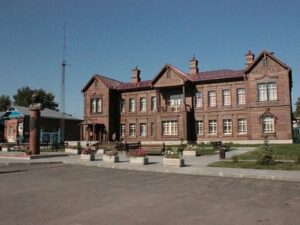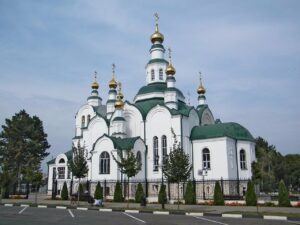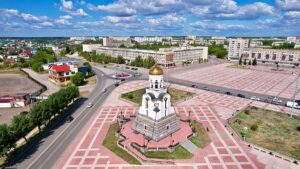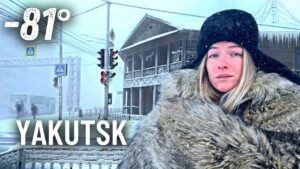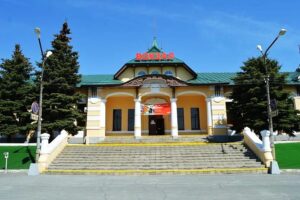Rostov-on-Don, Russia: Gateway to the South

Introduction
Rostov-on-Don, situated on the banks of the Don River in southern Russia, stands as a vibrant cultural, economic, and historical hub. As the administrative center of Rostov Oblast and one of the largest cities in the Southern Federal District, Rostov-on-Don has a rich history dating back centuries. This article explores the diverse facets of Rostov-on-Don, from its historical landmarks and architectural heritage to its dynamic cultural scene and economic significance.
Historical Background
Foundation and Early History
Rostov-on-Don was founded in 1749 as a fortress town on the southern frontier of the Russian Empire. Its strategic location near the confluence of the Don River and the Sea of Azov facilitated trade and defense, making it a vital center for Russian expansion into the Caucasus and the Black Sea region. The city’s name derives from its location on the Don River and its function as a military outpost (“don” meaning “river” in Russian).
Role in Russian History
Throughout its history, Rostov-on-Don has played a significant role in Russian history and culture. During the Russian Civil War (1917-1922), the city served as the headquarters of the Volunteer Army under General Anton Denikin, becoming a focal point of military and political activities. Rostov-on-Don’s resilience and strategic importance have shaped its identity as a symbol of southern Russian resilience and cultural heritage.
Soviet Era and Industrial Development
In the Soviet era, Rostov-on-Don experienced rapid industrialization and urban growth. The city became a major industrial center, with factories producing heavy machinery, agricultural equipment, and consumer goods. Rostov-on-Don’s location on the Volga-Don Canal and its proximity to agricultural regions facilitated the transportation of goods and raw materials, contributing to its economic development.
Architectural Heritage
Historical Landmarks
Rostov-on-Don boasts a diverse architectural landscape that reflects its historical and cultural influences. The Rostov-on-Don Kremlin, dating back to the 18th century, is a symbol of the city’s medieval past and administrative significance. Within its walls, visitors can explore the Cathedral of the Nativity of the Virgin and the Governor’s Palace, which offer glimpses into Rostov-on-Don’s architectural and historical evolution.
Art Nouveau and Soviet-Era Architecture
The city’s architectural heritage includes Art Nouveau buildings from the early 20th century and Stalinist structures from the Soviet era. The Pushkinskaya Street, lined with Art Nouveau mansions and historic buildings, showcases Rostov-on-Don’s cultural and artistic heritage. The Gorky Theatre and the Regional Museum of Fine Arts feature exhibitions on Russian and European art, highlighting the city’s cultural diversity and artistic achievements.
Modern Developments
In recent decades, Rostov-on-Don has undergone urban renewal and modernization efforts. New residential complexes, shopping malls, and cultural institutions have transformed the city’s skyline. The Rostov Academic Drama Theater and the Rostov State Musical Theater are cultural hubs that host performances ranging from classical plays to contemporary productions, enriching the city’s cultural life.
Cultural Life
Museums and Galleries
Rostov-on-Don boasts several museums and galleries that celebrate its rich cultural heritage and artistic achievements. The Rostov Regional Museum of Local Lore offers exhibitions on the region’s history, archaeology, and ethnography. The Museum of Military History showcases artifacts and exhibits related to Rostov-on-Don’s military heritage, while the Museum of the History of the Don Cossacks provides insights into the region’s unique cultural traditions.
Theatre and Performing Arts
The city has a vibrant theatre scene, with the Rostov Academic Drama Theater and the Rostov State Musical Theater staging performances throughout the year. The Rostov State Circus entertains audiences with acrobatic feats and animal performances, while the Rostov Puppet Theater delights children and families with puppet shows and interactive productions.
Cultural Festivals
Rostov-on-Don hosts cultural festivals that celebrate its traditions, music, and folklore. The Rostov City Day celebrations feature parades, concerts, and fireworks, showcasing the city’s community spirit and cultural diversity. The Rostov International Film Festival promotes cinematic talent and cultural exchange, enhancing the city’s reputation as a cultural destination.
Economic Significance
Industrial Base
Rostov-on-Don is a major industrial center in southern Russia, with key sectors including manufacturing, agriculture, food processing, and logistics. The city’s industrial complex produces machinery, chemicals, and agricultural equipment for domestic and international markets. Rostov-on-Don’s location on major transportation routes, including the M4 highway and the Don River, facilitates the transportation of goods and supports regional trade and commerce.
Transport and Logistics
Rostov-on-Don’s strategic location on the Don River and its well-developed transportation infrastructure contribute to its economic significance. The city’s port serves as a gateway for shipping goods along the Don River and connecting to international markets via the Azov and Black Seas. Rostov-on-Don International Airport offers domestic and international flights, supporting tourism and business travel to and from the region.
Education and Innovation
Rostov-on-Don is home to several universities and research institutes that contribute to its intellectual capital and innovation ecosystem. Southern Federal University, founded in 1915, is a leading educational institution known for its programs in science, technology, and humanities. The Institute of Physics and Technology and the Institute of Engineering Physics conduct research in physics, materials science, and aerospace technology, advancing scientific knowledge and technological innovation.
Modern Rostov-on-Don
Urban Development
Rostov-on-Don has seen significant urban development and infrastructure improvements in recent years. New residential complexes, commercial buildings, and public spaces have enhanced the city’s livability and attractiveness. The construction of the Rostov Metro, currently under consideration, aims to improve urban mobility and connectivity, providing residents with efficient transportation options.
Quality of Life
Rostov-on-Don offers residents a high quality of life with access to healthcare, education, and recreational amenities. The city’s healthcare system includes hospitals, clinics, and medical centers that provide comprehensive medical services. Educational opportunities are available at schools, colleges, and universities offering a range of academic programs. Parks, sports facilities, and cultural venues contribute to the city’s vibrant community life and social well-being.
Future Prospects
Sustainable Development
Rostov-on-Don is committed to sustainable development and environmental stewardship. Initiatives to promote energy efficiency, reduce pollution, and preserve natural resources are underway. The city’s focus on green technologies and renewable energy sources aims to create a more sustainable and resilient urban environment for future generations.
Tourism and Cultural Promotion
Rostov-on-Don is actively promoting its cultural heritage and tourist attractions to attract visitors from around the world. Efforts to develop tourism infrastructure, improve hospitality services, and host international events are expected to boost tourism industry growth. The city’s participation in cultural festivals, trade fairs, and sports competitions enhances its global visibility and appeal as a destination in southern Russia.
Economic Growth and Innovation
Rostov-on-Don’s strategic initiatives to diversify its economy and attract investment in key sectors such as technology, manufacturing, and agriculture are poised to stimulate economic growth. The city’s support for entrepreneurship, startup incubators, and research collaborations fosters innovation and creates opportunities for business development. Rostov-on-Don’s favorable business climate and skilled workforce contribute to its competitiveness as a regional economic powerhouse.
Conclusion
Rostov-on-Don is a city of historical significance, cultural richness, and economic dynamism in southern Russia. Its architectural landmarks, vibrant cultural scene, and industrial heritage reflect its evolution from a fortress town to a modern urban center. As Rostov-on-Don continues to embrace its future, it remains a symbol of innovation, resilience, and cultural diversity in Russia’s southern landscape. Whether you are fascinated by its historical sites, cultural festivals, or economic opportunities, Rostov-on-Don promises a captivating journey through the heart of southern Russia’s dynamic cityscape.
